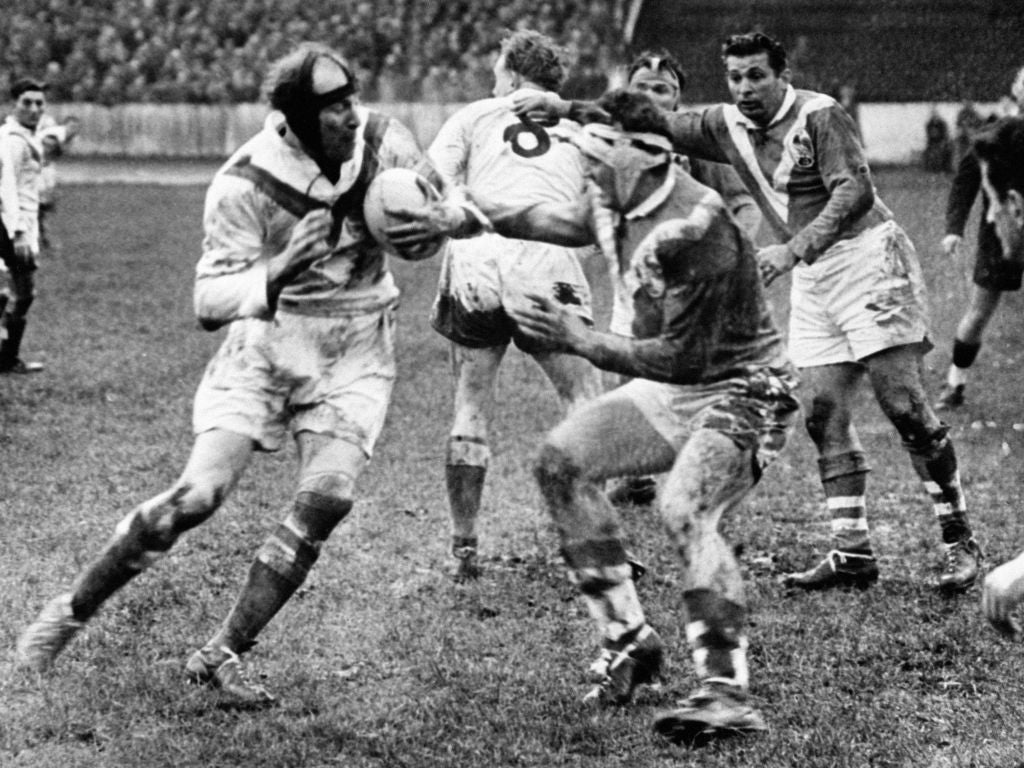Charlie Pawsey: Rugby league player of legendary hardness

Your support helps us to tell the story
From reproductive rights to climate change to Big Tech, The Independent is on the ground when the story is developing. Whether it's investigating the financials of Elon Musk's pro-Trump PAC or producing our latest documentary, 'The A Word', which shines a light on the American women fighting for reproductive rights, we know how important it is to parse out the facts from the messaging.
At such a critical moment in US history, we need reporters on the ground. Your donation allows us to keep sending journalists to speak to both sides of the story.
The Independent is trusted by Americans across the entire political spectrum. And unlike many other quality news outlets, we choose not to lock Americans out of our reporting and analysis with paywalls. We believe quality journalism should be available to everyone, paid for by those who can afford it.
Your support makes all the difference.Charlie Pawsey, who has died at the age of 88, was a classic example of a familiar rugby paradox. Renowned as a thorough gentleman off the field, he was, once he stepped on to it, one of the toughest, most aggressive players ever to play the game.
"Stories abounded about my dad, but he always maintained that, if half the things people said he had done were true, he would have been hanged," said his son, also called Charlie. "We knew him as a gentleman who treated everyone with respect. When he put that shirt on, though, someone else emerged."
What is a matter of record – although most of the details are disputed – isthe leading part he played in the most notorious and controversial matchever played. Pawsey was on tour with the Great Britain Lions in 1954. The Ashes Test series against Australia was locked at 1-1 and the match against New South Wales was viewed as an extra, unofficial Test.
It was clear in midweek, however, that there was something unorthodox about the tourists' approach to the match. The side Pawsey was selected to captain included two prop forwards on the wings and a second-rower at full-back. It was what is sometimes called "setting your stall out" and it was a pointer to the violence which was to take place at the Sydney Cricket Ground.
The Australian captain, Clive Churchill, said years later: "Beyond any doubt, the Englishmen did not take to the field to play football." The distinguished Australian journalist, George Crawford, was more inclined to spread the blame. "Every player on the field at one time or another took part in vicious incidents," he wrote. "Boots, fists, stiff-arm tackles and strangle-holds made the game an ugly farce."
It got worse in the second half, after the local referee, Aub Oxford, sent off the British stand-off, Ray Price, for abusing a touch-judge. The next few minutes brought a series of blatant fouls and a wild, all-in brawl. With 24 minutes to play, Oxford had seen enough; he abandoned the match and walked off, leaving the players bewildered, and never refereed again. That was not the end of it for the British team, who were besieged in their changing room by irate fans, screaming abuse at them.
It fell to Pawsey to try to salvage something from the chaos. As captain, he was asked to apologise to the Australians at a meeting the following Monday to discuss the shameful spectacle. He did so, even if it was through clenched teeth. According to his son, he always resented the fact that NSW were not obliged to issue an apology as well.
In all, Pawsey won 15 caps for England and Great Britain, all of them as a rampaging second-rower with Leigh. He had only become a rugby league player, however, by accident. His original game was football, at which he was good enough to be on Manchester United's books at one stage. One Saturday, his game was called off and he went with a couple of work-mates from Salford docks to watch them play rugby. They were a man short, he agreed to fill in, showed an immediate aptitude for the game and never played with a round ball again.
Pawsey played professionally for Belle Vue Rangers, but it was from the Salford amateur side, Langworthy Juniors, that he signed for Leigh in 1947. He went on to play 216 times, scoring 27 tries, between then and 1955, winning the Lancashire Cup against St Helens in 1952 and earning himself the reputation as one of the most formidable forwards in the game.
After the 1954 tour, he had a dispute with Leigh over time off. He joined Huddersfield, for a hefty £12,000 fee, but played only eight games for them before retiring from playing, although he did have a spell as reserve-team coach at Swinton. There, he was a major influence on a number of young players who formed the nucleus of Swinton's successful side of the early '60s. In particular, he persuaded Alan Buckley to persist with rugby league, in which he became an outstanding international.
Throughout his playing career, Pawsey had kept his job on the docks and in his later working life he rose to the position of chief labour superintendent, in charge of 2,500 men. He was chairman of the Rugby League Lions' Association for former tourists and his other sporting enthusiasm was crown-green bowling, at which he represented Lancashire.
Charles Pawsey, rugby league player: born Salford 15 April 1923; married Ethel (deceased; two sons, one daughter); died Salford 10 January 2012.
Join our commenting forum
Join thought-provoking conversations, follow other Independent readers and see their replies
Comments